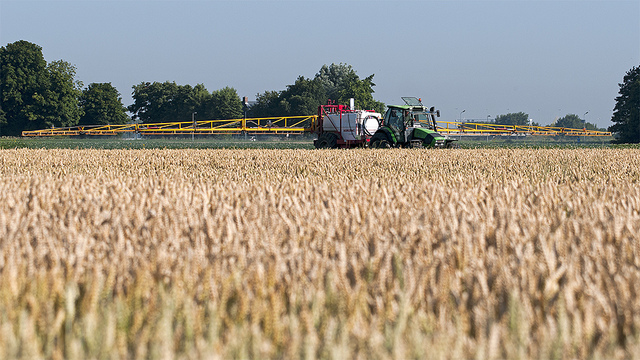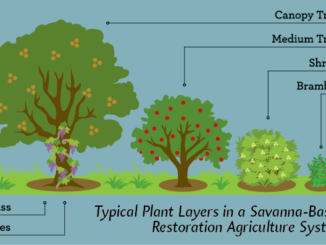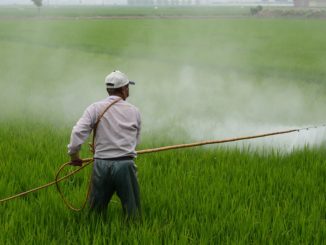A team of researchers in France have shown that is it possible to reduce pesticide use on most French arable farms without impacting on either yield or profitability.

“We demonstrated that low pesticide use rarely decreases productivity and profitability in arable farms”. That’s according to a team of researchers who have just published their research, based on 946 non-organic arable farms in France.
The researchers, led by David Makowski and Nicolas Munier-Jolain, found “no conflict” between low pesticide use and both high productivity and high profitability in 77% of the studied farms. For the other 23%, an especially industrial and highly pesticide-dependent model of farming was in operation. They also estimated that pesticide use could be reduced by 42% in total without negative effects on both productivity and profitability in 59% of farms.
Farms with the highest pesticide use had the most potential for reducing pesticide use, without impacting on productivity or profitability.
The farms were part of the Dephy network, which is part of the French government’s pesticide reduction initiative called Ecophyto. The farms themselves represent a wide range of techniques with a wide range of uses of insecticides, herbicides and fungicides. Being part of this network means the farms submit data for analysis on chemical use, crop yields and other information.
Not all similar studies have been so optimistic about pesticide reduction: a smaller 2014 study of French arable farms had shown France’s winter wheat harvest could drop by more than 1/10 if farmers reduced pesticide use by 50%.
France has in recent years made moves to reduce pesticide use, including via Ecophyto initiatives. The current campaign, Ecophyto 2 which runs until 2018, aims to half pesticide use nationally. As we reported last September, “pesticide sellers have started a five-year trial period during which they agree to promote alternatives to chemicals.”
Alternatives – such as biological or mechanical methods – are weighted in a matrix and contribute to a distributor’s overall score towards a certified target. For every missed Certificat d’Economie de Produits Phytopharmaceutiques (CEPP) at the end of the five years, distributors will face a fine, currently set at a symbolically low five euros.
However French agri coops are tied up in the sales of pesticides, so are set to loose income if pesticide sales reduce; it is thus no surprise that the French farmers’ unions oppose it, describing the initiative as “ideological posturing”.
Whatever about the coops selling pesticides, according to the team of researchers, “our results demonstrate that pesticide reduction is already accessible to farmers in most production situations. This would imply profound changes in market organization and trade balance.”





